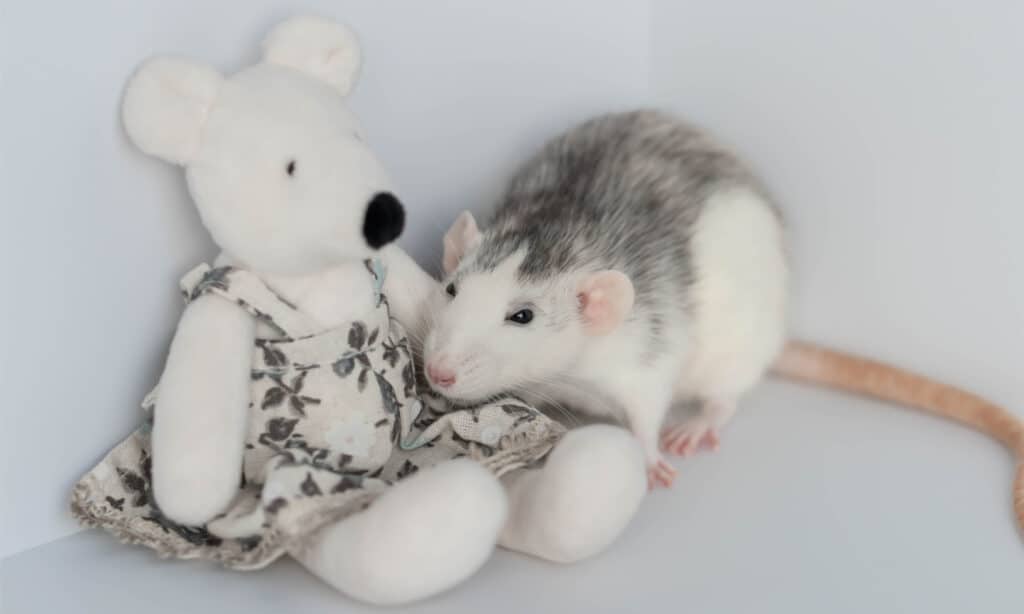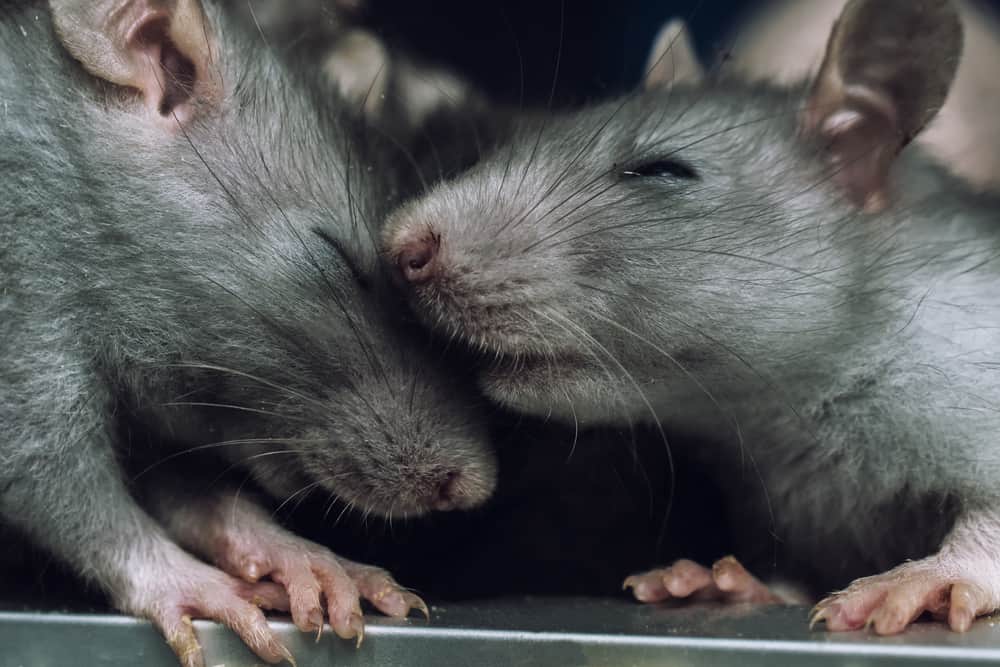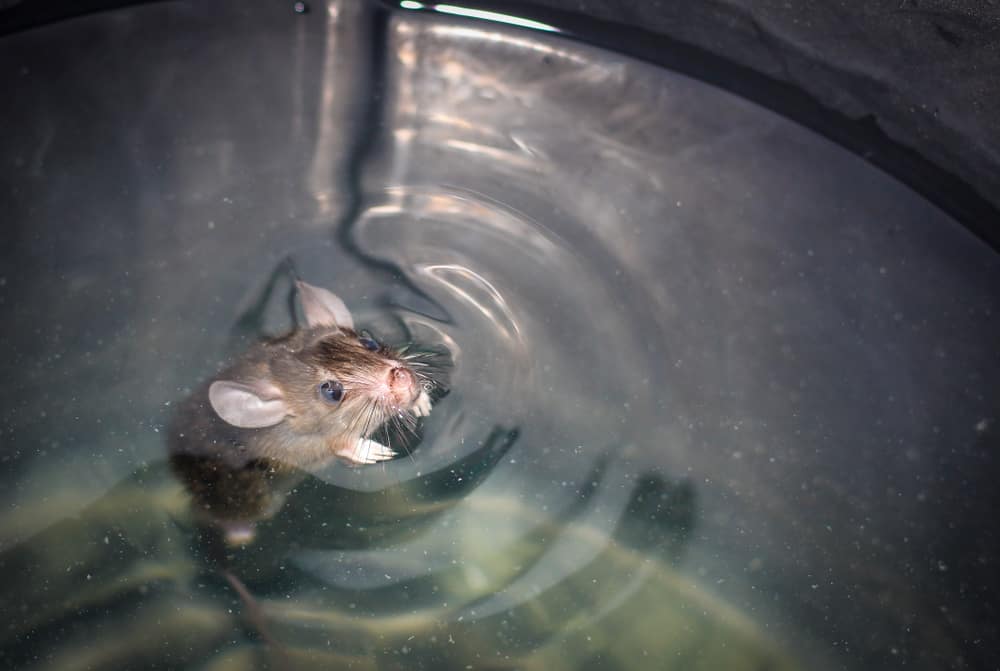Rats, often considered pests, may not be the pet of choice for some people, but they’re right up others’ alleys. Although wild rats often make our lives difficult, domesticated ones can be a lot of fun as pets. But do rats make good pets? Unsurprisingly, the answer is yes. These animals are extremely smart and surprisingly clean, which gives you three reasons why these animals make good pets. So whether you’re a child, family, or even a busy professional, let’s explore why keeping a pet rat is a good choice for anyone.

Do rats make good pets? Rats are smart, playful, sociable, and clean, making them good pets for children and adults.
©iStock.com/Irina Ilina
Rats Make Good Pets
Rats are perfect pets for little kids and adults who have busy schedules. In addition, rats make good pets for a range of reasons:
Low maintenance

Rats are low maintenance, but they are social animals who need adequate stimulation and socialization.
©Ukki Studio/Shutterstock.com
These small furry animals are low maintenance and often need far less attention than many other pets. This low maintenance factor is why rats are perfect for people who work 9 to 5 jobs or who do not have as much free time on their hands. If you fall in this category and want a rat companion, you must ensure that your rat has enough food, water, and toys for healthy mental stimulation. Also, rats are social animals, so keeping them in pairs or small colonies is advisable for their mental health.
Affordable
Most pets need grooming, regular veterinarian visits, and expensive special foods. In contrast, rats are low maintenance. Their main expenses include food, water, shelter, toys, and the occasional vet check-up. Even if you need to buy a cage or aquarium and toys, these are one-off expenses, but the monthly costs are low when keeping rats as pets.
Low health costs
Most rats do not easily get sick, which means few to no veterinarian bills. In addition, rats are among the most successful animal species because they have robust immune systems. Female rats, also known as does, sometimes suffer from mammary tumors, but rats are naturally resistant to various illnesses and diseases.
Cleanliness
Contrary to popular perception, rats are clean animals. Specifically, when kept as pets, fancy rats regularly groom themselves and keep their space clean. Rats also enjoy being brushed down by their owners. Male rats, known as bucks, will mark their territory when introduced to a new cage or new rats. This behavior leaves the enclosure with a pungent smell, but it will only last for a few weeks before they become accustomed to their new home and friends. You must clean their cage regularly (at least once a week) with soap and water.
Smart

Rats are highly intelligent and respond well to training.
©Sergey Bezgodov/Shutterstock.com
Rats are intelligent, and they’re easy to train. Common tricks you can teach a pet rat include responding to their name, standing on their hind legs, and jumping through hoops. Of course, teaching tricks to pet rats is entertaining for children and adults and is also very rewarding.
Getting a Pet Rat
Although rats are fun, easy pets to have, and are low maintenance, there are a few things to learn about before committing to a purchase. First, they are nocturnal animals, so their cage must be in a quiet space during the day to rest and prevent stress.
Pet rat owners should also try and avoid stress for these animals because of other pets in the home. Inquisitive animals, like cats and dogs, may want to explore the cage, which is likely to cause duress for your rat. If this situation continues over time, it may develop health issues due to sustained anxiety.
Pet rats also need to exercise and keep themselves occupied. The owners should purchase toys and exercise equipment to ensure ongoing mental stimulation for well-being. A stimulating piece of equipment is a wheel, so your pet rat has lots of exercise inside its enclosure.
Rats also need things to chew on for their teeth. Because rodents’ teeth do not stop growing, chewing on things helps to keep their teeth at a comfortable and safe length.
Some Pet Rats Love Water

Some pet rats will love swimming, as many subspecies enjoy swimming in the wild.
©tomocz/Shutterstock.com
Some rat subspecies, like the Norway rat, enjoy swimming in the wild as their bodies are equipped to do so. If you have a pet Norway rat, they would likely love spending time in the water, but rats enjoying the water depends on their personality and their species.
To find out if your pet rat loves the water, we suggest you place a shallow bowl of water in their cage. If your pet shows interest and begins exploring, you can think about introducing it to deeper bodies of water. For example, you can fill a bath with water or use a swimming pool to help your pet rat gain confidence and become comfortable swimming.
Introducing a pet rat immediately to deep water is not suggested as they may panic, which would be traumatizing. In some cases, rats may panic and drown, which will also be traumatic for the owner.
The Size Of Rats
Pet rats are known as medium-sized rodents and do not grow too large. Their size depends on the species and gender, but most pet rats do not grow beyond 16 inches long. For example, the Norway rat is a bigger pet rat species. Their body length increases to 16 inches as they grow, while their weight expands to between half a pound and one pound. Roof rats are smaller than Norway rats and grow between 13 to 15 inches in length. The adult roof rat usually weighs between 0.3 and 0.6 pounds. Generally, bucks are larger and weigh more than does.
How Old Do Rats Get?
A rat’s lifespan is typically between two and three years. But, because wild rats have many predators, they tend to live a far shorter life than their domestic counterparts. Moreover, because pet rats live quite a luxurious lifestyle, some have been known to live as long as seven years. However, an extended lifespan depends on their diet, surroundings, and general care.
The photo featured at the top of this post is © Maliutina Anna/Shutterstock.com
Thank you for reading! Have some feedback for us? Contact the AZ Animals editorial team.






